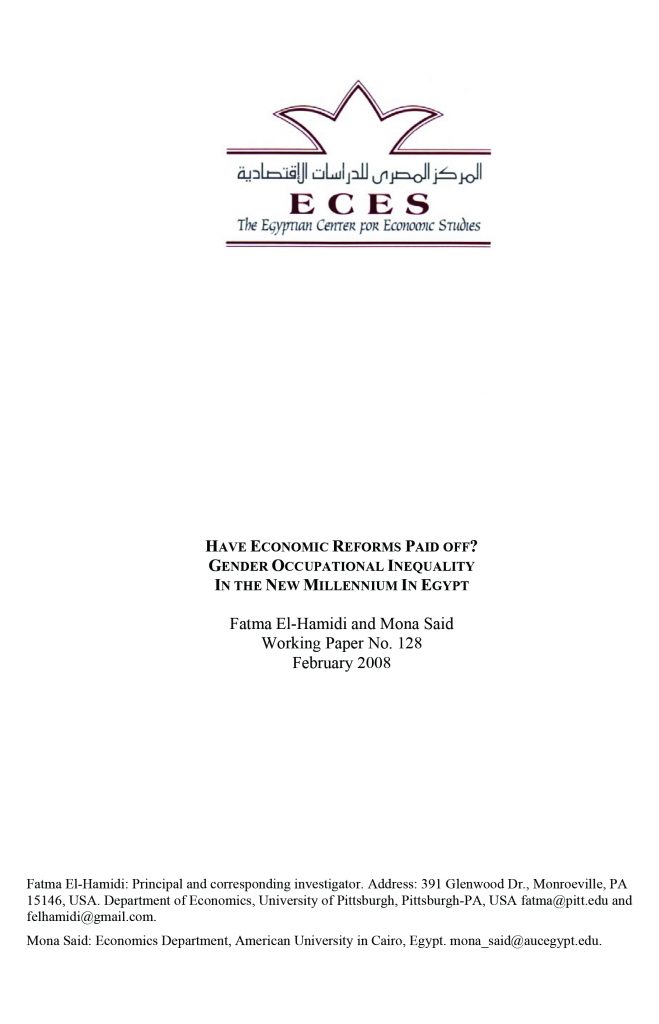Abstract:
This study assesses the impact of recent liberalization measures and institutional changes in Egypt on gender wage and occupational inequality. Using newly released Labor Force Sample Surveys (LFSS) for the years 2000-2004, a slight drop in public sector employment and a comparable increase in private sector employment for women is observed. Regardless of sector of employment, women still earn less than men, with private sector workers being the worst. To remedy this situation, policy tools should deal with both inter- and intra occupational discrimination in accordance with the type of occupation. Direct informational campaigns and equality planning at the school, university and workplace; systematic statistical frameworks for monitoring gender pay differentials; social security and taxation policies that treat women as individuals not just spouses as well as family policies that emphasize parental leave schemes, reduced working hours and flexible working arrangements are all policies that were tried with success in the Japanese and Nordic labor markets, and merit consideration while women are encouraged to enter the private sector labor market in larger numbers in Egypt.

